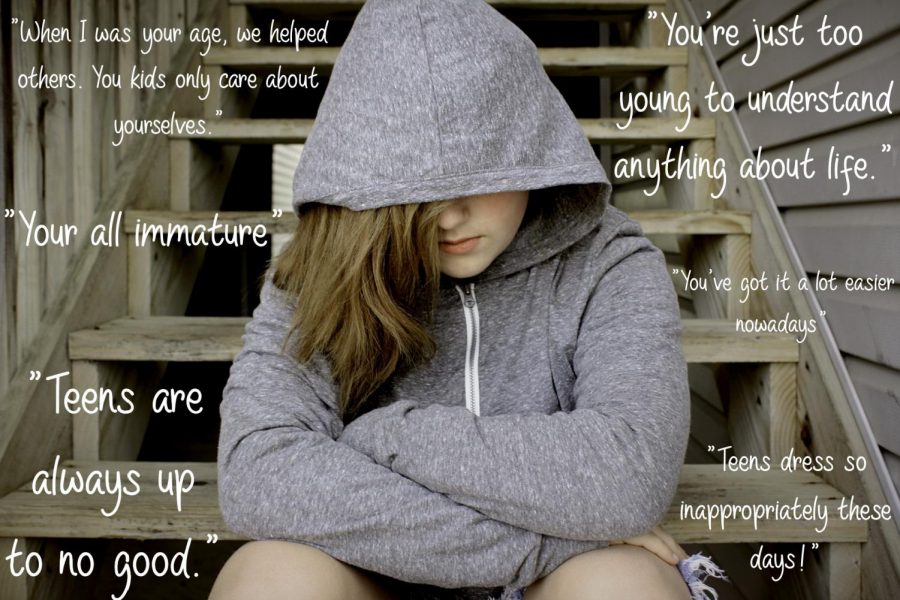Being confined
The harm in stereotyping
May 7, 2020
As a teenager, we feel the need to find a place where we belong. In high school, many of us end up in a group where we can gain memories, friends, and possibly, the stereotypes associated within groups.
Stereotyping can be done by parents, teachers, coaches, and peers. The stereotypes people put on teenagers can be harmful and cause young people to struggle with things like mental illnesses.
Harvard Health Publishing said that stereotyping can lead to self-consciousness that is not only distracting and anxiety-provoking, but can also interfere with achievement.
In the 1985 film, The Breakfast Club, many stereotypes are present, such as the athlete, the nerd, the outcast, the rebel, and the princess. The movie also shows examples of how stereotypes are harmful to students including an increase in anxiety and depression.
According to GlobalPost, stereotyping puts a teen in a box making little room for growth beyond society’s limited labels and often unjustified expectations.
Teenagers also struggle with self-image and self-esteem because of stereotyping. Teenagers are often labeled according to their physical appearance so when they try to meet society’s body-image or beauty expectations, they start to struggle mentally.
According to Betterhelp.com, students may begin to feel the intense pressure to succeed, often working harder and putting more effort into extracurricular activities which later may lead to breakdowns in behavior, mood changes, and depression.
Besides being labeled individually, teenagers are also often stereotyped as a whole. According to Harmony At Home, adults comment on today’s youth in a negative manner: too much technology, lazy, disrespectful, revealing clothing, selfish, entitled, and the list goes on.
Harmony At Home also mentioned that stereotypes can create a self-fulfilling prophecy for youth, because if they believe that everyone sees them in a negative light, then what is the point for them trying to show the good they can do?
We should be allowed to see the opportunities we have to and become someone we are proud of, but stereotypes can confine us and stop us from doing so. Growing up is already hard for young people, but when we feel that no one sees the good in us then our confidence can plummet and the struggles we already have skyrocket.
As teenagers, we should be allowed to explore our feelings and learn life lessons on our own, we should also recognize that we are not alone in our struggles. Adults and people around us should learn how to be there for us instead of using stereotypes to box us in.


